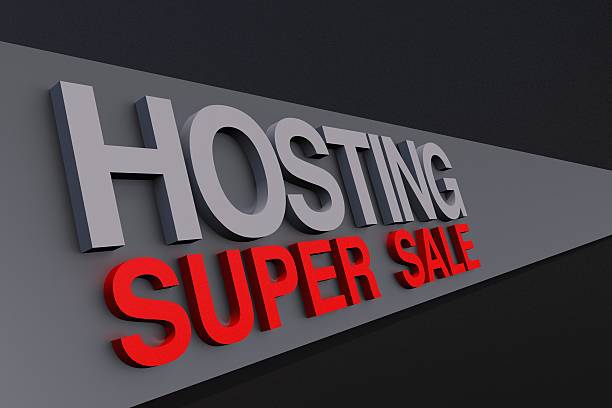Choosing the right web hosting provider is one of the most critical decisions you’ll make when launching or scaling an eCommerce store .
With platforms like Shopify , WooCommerce , and Magento powering millions of online stores, each has unique hosting needs. While Shopify is fully hosted (no need to choose a host), WooCommerce (WordPress-based) and Magento (enterprise-level) require careful hosting selection to ensure performance, security, and scalability.
In this guide, we’ll explore:
- The best web hosts for Shopify , WooCommerce , and Magento
- Key features to look for in a hosting provider
- Performance benchmarks and real-world insights
- How to match your hosting plan with your business goals
Let’s dive into what makes a great host — and which providers stand out in 2025.
Why Hosting Matters for Your eCommerce Platform
Your hosting environment directly impacts:
- Site speed –直接影响SEO和转化率
- Uptime reliability –直接影响销售和用户体验
- Security –保护客户数据和支付信息
- Scalability –支持流量高峰和 growth
- Support quality –影响故障排除和运营效率
While Shopify users don’t have to worry about selecting a host (it’s all-in-one), WooCommerce and Magento store owners must choose wisely.
A poor hosting decision can lead to slow load times, frequent downtime, and even lost revenue during high-traffic events like Black Friday sales.
Hosting Options by eCommerce Platform
Shopify – Fully Hosted, No Choice Needed
Shopify is a SaaS platform , meaning it comes with its own hosting infrastructure.
Pros:
- Built-in CDN and global edge servers
- Automatic updates and backups
- Scalable cloud architecture
Cons:
- Limited technical control
- Higher-tier plans required for advanced features
💡 Best For: Beginners, small businesses, and brands that want full-service hosting.
WooCommerce – WordPress-Based & Hosting-Dependent
WooCommerce runs on WordPress , so your hosting choice determines everything from speed to scalability.
You can use shared hosting, VPS, managed WordPress hosting, or cloud hosting — but not all are created equal.
Key Hosting Requirements:
- PHP 8.0+ support
- MySQL 5.6+/MariaDB 10.0+
- SSL certificate (HTTPS)
- Caching plugins and CDN integration
- Fast server response time (<300ms)
💡 Best For: Small to mid-sized stores with flexibility in tech stack.
Magento – Enterprise-Level Hosting Demands
Magento (Adobe Commerce) is built for large-scale operations and requires powerful hosting infrastructure.
Key Hosting Requirements:
- Dedicated/VPS/cloud hosting
- PHP 8.0+, Elasticsearch, Redis cache
- High-performance database (MySQL or MariaDB)
- Server-side caching (Varnish)
- Advanced security protocols
💡 Best For: Large enterprises and developers who need full control over their site.
Top Hosting Providers for Each Platform in 2025
Here’s our breakdown of the best hosting options for each platform:
Shopify Stores – Built-In Hosting
Since Shopify handles hosting natively, there’s no need to choose a third-party host. However, Shopify offers different plans with varying levels of performance and support.
Shopify Plan Comparison:
WooCommerce Hosting – Managed WordPress Hosting Recommended
WooCommerce stores run on WordPress, making managed WordPress hosting the ideal solution for performance and ease of use.
Top 5 WooCommerce-Optimized Hosts in 2025:
Magento Hosting – Cloud or Dedicated Hosting Required
Magento demands more resources than other platforms. It’s designed for enterprise-level stores and requires a high-performance hosting environment .
Top 5 Magento-Ready Hosting Providers in 2025:
Pro Tip: Look for hosts offering Varnish Cache , Elasticsearch , and Redis support for optimal Magento performance.
Key Features to Look for in eCommerce Hosting
Regardless of your platform, these features should be non-negotiable:
✅ Fast Page Load Times
Aim for under 2 seconds . Every 100ms delay reduces conversion by up to 7%.
✅ 99.9%+ Uptime Guarantee
Downtime = lost sales. Choose hosts with proven uptime records.
✅ Strong Security
Look for automatic updates, malware scanning, and PCI compliance.
✅ SSD Storage
Faster data retrieval and improved performance.
✅ CDN Integration
Improves global reach and page speed.
✅ Developer Tools
Git, SSH access, and staging environments are crucial for larger stores.
✅ 24/7 Support
Live chat or phone support helps resolve urgent issues fast.
How to Choose the Right Hosting Plan for Your Store
Use this quick checklist to decide which hosting setup suits your needs:
📦 Shopify Users:
- ✅ Use Shopify’s native hosting
- ✅ Upgrade to higher-tier plans as traffic grows
- ✅ Use apps for performance optimization (e.g., image compression, caching)
📦 WooCommerce Users:
- ✅ Start with managed WordPress hosting
- ✅ Ensure compatibility with popular WooCommerce extensions
- ✅ Use caching and CDN tools for better performance
📦 Magento Users:
- ✅ Go for cloud or dedicated hosting
- ✅ Choose a host with Magento expertise
- ✅ Enable Varnish and Redis for better performance
Frequently Asked Questions (FAQ)
Q: Do I need special hosting for Shopify?
A: No — Shopify provides fully managed hosting. You only need to choose the right Shopify plan.
Q: Can I use any host for WooCommerce?
A: Technically yes, but only certain hosts offer WooCommerce-optimized environments .
Q: Is shared hosting good for eCommerce?
A: Only for very small stores. Most serious stores benefit from managed hosting .
Q: Does hosting affect my store’s SEO?
A: Absolutely. Google considers page speed and mobile performance — both heavily influenced by hosting.
Q: Should I use a hosting provider based in my region?
A: Not necessary if your host offers a global CDN . Otherwise, regional proximity improves latency.
Final Thoughts
Your eCommerce hosting choice isn’t just a technical detail — it’s a conversion driver .
Whether you’re running a Shopify store , a WooCommerce-powered shop , or a Magento enterprise site , choosing the right host ensures:
- Faster load times
- Better security
- Fewer errors
- Smoother customer experience
- Easier maintenance and scaling
As we move further into 2025, the demand for fast, flexible, and secure hosting will only increase. Make sure your hosting keeps pace with your growth.
Because in the world of online retail, performance isn’t optional — it’s essential .










